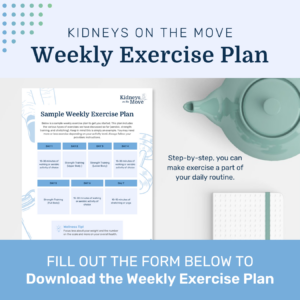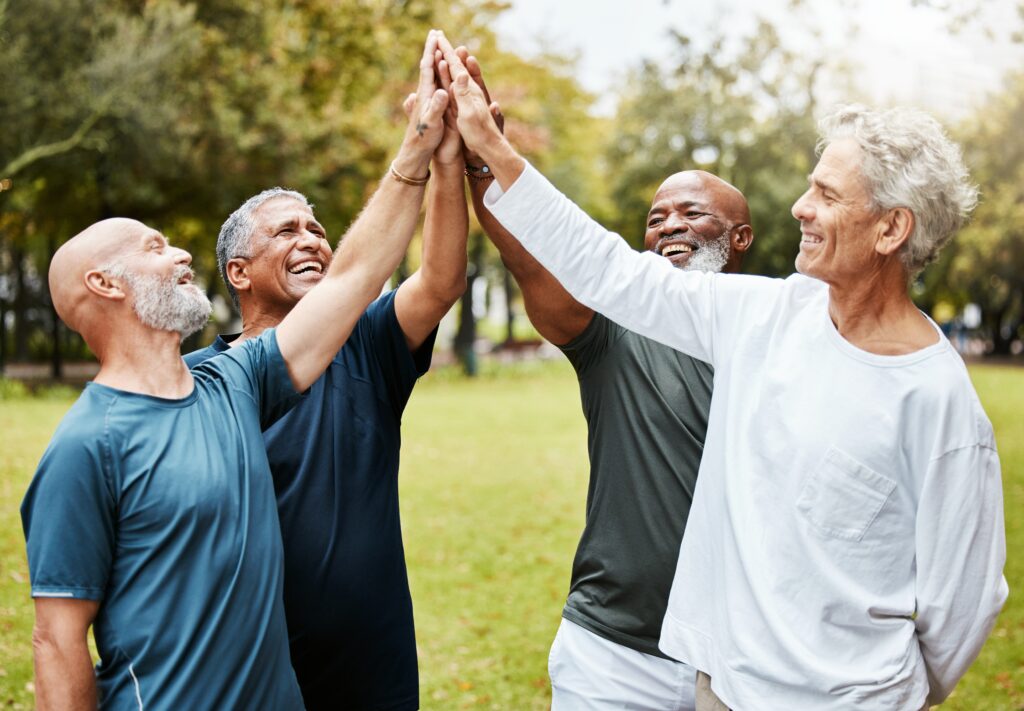Kidneys On The Move
Because Your Kidneys are Worth Fighting For
March is National Kidney Month!

Did you know?
On average, kidney disease affects one in nine people with most of them not even being aware of it? This is because patients who develop chronic kidney disease remain largely asymptomatic.
That’s why it is crucial to take every effort to keep your kidneys under control.
To kick off National Kidney Month, we are here to help you “keep your kidneys on the move”! You’ve probably heard that exercise is good for you. Exercise can not only improve your physical health, but your mental health as well. If you already exercise, keep it up!

What if I don't exercise?
Don’t worry if you don’t currently exercise, have never exercised, or got out of the habit for some reason. It’s never too late to get moving. If exercise is new to you, always talk with your provider before starting a new exercise plan.
Keep your kidneys moving
Regular physical activity and exercise can improve your overall health. No matter your age, current health status, or level of activity, being active can benefit every area of your life.
When you have chronic kidney disease, frequent exercise is very beneficial for improving renal function, increasing strength, sleeping better, having more energy and muscle strength, and helps equip you to do day-to-day tasks more often.
Benefits of exercising
Staying active can help you
- Strengthen your bones and muscles:
- This helps you be able to complete regular daily tasks and activities.
- Improve balance:
- Which can lower your risk of falls and injuries.
- Manage your current health conditions:
- Like controlling blood pressure, blood sugar, reduce aches and pains.
- Improve your energy levels:
- So you have more energy to do the things you want to do and tackle daily chores.
- Improve your sleep:
- To help you fall asleep faster and get better quality of sleep.
- Manage your weight:
- So you can prevent excess weight gain and help you stay at a healthy weight.
- Reduce your health risk:
- For heart disease, stroke, type 2 diabetes, bone disease, and certain types of cancer.
- Improve mood:
- Feel more positive and improve self-esteem, reduce depression, anxiety, and stress.

Tips on how to get moving
If you’re not sure how or where to get started, we’re here to help support and guide you every step of the way. We’ve outlined some simple steps to help you along your health journey.
Talk to your provider
Before starting any new exercise plan, it’s important to have first talk to your provider. Check to see what exercise activities are safe for you and what are the best ways to begin keeping your “kidneys on the move” each day.
You may also ask your provider additional questions like:
- What type of exercises would be best for me?
- Are there any types of exercises I should avoid?
- Do any of my health conditions or medications affect my ability to exercise?
Have a plan
There are things you can do to prepare before talking to your provider. Make sure you:
- Think about what exercises you will enjoy. You are more likely to stick with an exercise plan when you find enjoyment in movement.
- Have a support system like a friend or family member to keep you motivated and help you stay on track.
How to get started
Getting started exercising can become a hurdle if you let it! That’s why we are here to provide a potential guide to get you going!
- Start slow and build up gradually, allowing plenty of time for warm-ups and cool-downs before and after each exercise.
- Break things up if needed; shorter workouts may fit into your schedule better instead of completing them all at once.
- Get creative and build activity into your daily routine, like taking the stairs instead of the elevator, or walking up and down your hallway during commercial breaks when watching TV.
- Listen to your body. If you feel pain, shortness of breath, dizziness, or nausea, stop exercising and take a break.
- It is OKAY to take a day or two off—so don’t worry if you need a rest.
Ready to get moving?
Ready to learn more about how exercise can benefit your health and incorporate it into your daily routine?
Fill out the form at the top of the page for more information and sample workouts to get you started on this new journey.
So, let’s go! Start moving your body today and give your kidneys the care they deserve!
Learn more about the healthy living program.
Somatus is here to answer your questions anytime. Call us (855) 851-8354
